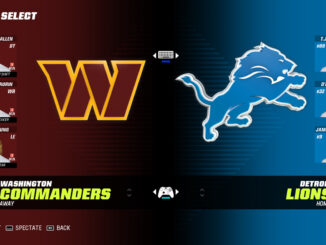
BOMBSHELL: Washington Nationals and MASN Rights Fee Dispute Moves to.. see
The long-standing legal battle between the Washington Nationals and the Mid-Atlantic Sports (MASN) over television rights fees is set to take center stage in a New York court. This contentious dispute, which has spanned over a decade, revolves around how much MASN should pay the Nationals for broadcasting their games, and the outcome of the case could have significant implications for the business of baseball and sports media rights.
Background of the Dispute
At the heart of the dispute is MASN, a regional sports network created in 2005 by the Baltimore Orioles as part of an agreement tied to the relocation of the Montreal Expos to Washington, D.C., where they became the Nationals. As part of the deal, the Orioles retained a majority ownership stake in MASN and the right to control its financial decisions, including the television rights fees paid to the Nationals.
Initially, the Nationals were granted a modest rights fee as they worked to establish their presence in the D.C. market. However, as the team gained popularity and began competing at a higher level, including a World Series win in 2019, the Nationals argued that their fair market value for television rights had significantly increased. The team has since sought to renegotiate their rights fees, but MASN and the Orioles have pushed back, leading to a prolonged legal battle.
Arbitration and Court Battles
The disagreement over rights fees was first addressed in an arbitration process overseen by Major League Baseball (MLB). In 2014, the MLB Revenue Sharing Definitions Committee (RSDC) ruled in favor of the Nationals, awarding them a significant increase in rights fees. However, MASN and the Orioles challenged the decision, claiming the process was biased because MLB, as a league-wide entity, could not act impartially in a matter involving one of its teams.
This initial challenge led to a series of legal maneuvers and appeals in various courts, delaying any resolution. In 2017, a New York court vacated the RSDC’s decision, citing procedural concerns. The case was sent back for a rehearing, and the RSDC once again ruled in favor of the Nationals in 2019, reaffirming their claim for higher rights fees. Yet, MASN and the Orioles continued to contest the decision, arguing that the arbitration process remained flawed.
Moving Forward in New York Court
The latest development brings the case back to the New York State Supreme Court, where the Nationals hope to enforce the RSDC’s ruling and secure the increased rights fees they believe they are owed. Meanwhile, MASN and the Orioles are expected to argue that the arbitration process remains unfair and that the previous rulings should not stand.
Legal experts believe this case could have broader ramifications for how disputes over sports media rights are handled in the future. If the court ultimately sides with the Nationals, it could set a precedent for other teams seeking to renegotiate their television deals. Conversely, a decision in favor of MASN could strengthen the position of regional sports networks and their controlling stakeholders in similar disputes.
Financial and Operational Implications
For the Nationals, the outcome of this case could have a significant financial impact. The team has argued that the current rights fees are far below market value and have hindered their ability to invest in player salaries, facilities, and other areas critical to maintaining a competitive team.
On the other hand, MASN and the Orioles have argued that paying higher rights fees could jeopardize the financial stability of the network, which also broadcasts Orioles games. This dynamic underscores the delicate balance between team revenues, network operations, and the broader economics of baseball.
A Case to Watch
As the case heads to a New York court, both sides are preparing for what could be a final showdown in this drawn-out battle. The decision will not only determine how much MASN owes the Nationals but could also shape the future of media rights negotiations in Major League Baseball and beyond.
Fans, legal experts, and industry insiders alike will be watching closely as this high-stakes dispute unfolds.




Be the first to comment